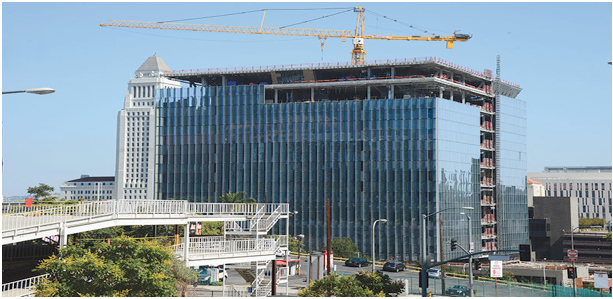CommentsTHIS IS WHAT I KNOW--The changing landscape of Los Angeles and environs has prompted concerned groups to mobilize to protect neighborhood integrity and stop the deep pockets of developers from yielding undue influence on council members and planning commissions.
All that could change if SB 734 were to pass. The bill would provide protection against potential lengthy litigation against large developments in California. In Hollywood, the $1 –billion redevelopment of the Crossroads of the World complex and a $200-million hotel/residential development at Yucca Street and Argyle Avenue are among the projects that would be protected by the new law that is intended to reduce lawsuits against large developments throughout the state.
In a nutshell, the bill would not protect mega-projects ($100-million plus) from California Environmental Quality Act (CEQA) suits but would fast-track the suits to wrap up within nine months instead of up to three years. The bill would also provide for higher wages for construction workers and place strict guidelines for greenhouse gas emissions and renewable energy.
SB 734 would extend by two years a 2011 measure supported by Brown and influenced by legislation that year that would have benefitted the now defunct Farmers Field football stadium project downtown.
However, since the 2011 measure passed, only six projects qualified for the fast-track process, including Apple’s expanded corporate headquarters in Cupertino and a proposed arena for the NBA Golden State Warriors in San Francisco. Although some of the six have been built or are currently under construction, none have needed to utilize the provisions.
Critics of the 1970 CEQA intended to preserve the environment say the law is overbearing. However, the proposed bill is limited to massive developments like sports arenas and condo towers, which could absorb any litigation costs, unlike smaller developments.
Proponents say the bill is essential to California’s economic recovery, fast-tracking job-producing, environmentally-friendly projects. The bill’s co-author, state Sen. Cathleen Galgiani (D-Stockton) is hopeful for a bi-partisan super-majority vote in both houses by the end of the legislative session in August. If the bill is signed into law, developers would need to apply to the governor to be certified to meet the investment, wage, and environmental parameters.
The Sierra Club and other environmental groups oppose the bill because they are unhappy with the standards that developers need to meet. The state’s Judicial Council, which is sets policies for the courts, is also opposed to the measure on the grounds that the bill would push these suits to the front of the line, even before previously filed suits.
While encouraging green projects that would add to employment seems sound, SB 734 would provide fast-track litigation and special treatment only to large-scale mega-projects, weakening the ability of activist and environmental groups to impact or stop mega-developments in their neighborhoods. Large-scale projects often compromise traffic, parking, affordable housing, and neighborhood integrity and citizens should have a voice that is not quieted by a shorter litigation process.
(Beth Cone Kramer is a Los Angeles writer and a columnist for CityWatch.)
-cw
Sidebar
Our mission is to promote and facilitate civic engagement and neighborhood empowerment, and to hold area government and its politicians accountable.

 CityWatch Los Angeles
Politics. Perspective. Participation.
CityWatch Los Angeles
Politics. Perspective. Participation.
17
Tue, Feb















